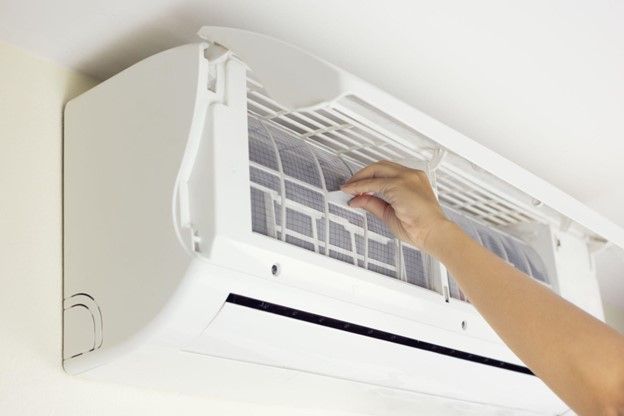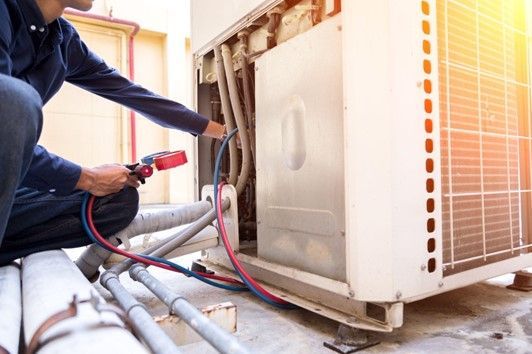
6 Signs of a Bad Air Conditioner Capacitor
A capacitor plays a significant role in running your air conditioner's motors. Without the capacitor, the motors won't have enough power to rev up the AC unit as it starts its cooling cycle. But how can you recognize a failing or faulty air conditioner capacitor? Check for the indicators discussed below.
1. Humming Noises
Weird noises are always an indicator of a malfunctioning AC system. If you hear a humming sound coming from your unit, it's a sign of a failing capacitor. You should pay close attention to your condenser unit as it's the most affected.
A humming noise from the condenser could mean the compressor motor isn't getting enough torque from the capacitor. As a result, the motor produces a humming sound as it tries to start.
2. Burning Smell
Your AC system emitting a burning smell should raise concerns. A burning odor indicates that one of the AC components is overheating. In most cases, the compressor motor is the culprit. If the burning smell is predominant around the condenser, the compressor motor is the problem.
Sometimes you might see smoke coming from the outside AC unit. But what would cause the compressor motor to overheat? Well, it could be a failing motor or a bad capacitor.
A faulty capacitor forces the motor to work harder than usual. As a result, the motor windings will overheat and produce a burning smell. Once you see smoke or smell a burning odor, turn off the unit to avoid burning out the compressor motor.
3. AC Unit Not Starting
An air conditioner failing to start on a hot day can be frustrating. But why won't your AC system turn on? It could be a thermostat issue, tripped circuit breaker, a blown fuse, or an AC motor failure. But if you have ruled out these problems, you might be dealing with a bad capacitor.
Air conditioners have two capacitors. The start capacitor delivers enough power to start the motor, while the run capacitor releases energy to maintain the running motor. If you have a faulty start capacitor, your AC system won't start until you change the capacitor.
4. Skyrocketing Cooling Bills
Your cooling costs shouldn't change much if you have serviced your AC unit. But if your energy bills change suddenly, your AC system has a problem. A sharp increase only means that your air conditioner has been overworking. Surprisingly, an AC unit will only overwork due to low refrigerant levels, poor airflow, and bad capacitors.
Since you have been servicing the unit often, the energy bills can only increase due to a failing capacitor. The capacitors ensure your AC system runs efficiently. However, if one capacitor fails, the unit will struggle to meet your cooling demands.
5. Short Cycling
Does your air conditioner turn off randomly? Well, that's a sign the run capacitor isn't releasing consistent power to keep the motors running. As a result, the AC unit will turn off several times during the cooling cycle. You should replace the run capacitor if it can't provide a consistent power supply to the motors. Otherwise, you'll have to deal with short-cycling problems.
6. Tripping Circuit Breaker
The circuit breaker tripping is another sign you shouldn't ignore. Circuit breakers will only trip when there's an electrical problem. Maybe the electrical current is insufficient, or the compressor is hard starting. If your compressor has problems starting up, it indicates inadequate electricity flow.
As mentioned earlier, capacitors should start the compressor motor and keep it running. The AC breaker might also trip due to the compressor motor overheating. If the circuit breaker trips several times, shut down the AC system to avoid causing permanent damage.
A failing capacitor affects your air conditioning performance. So, don't hesitate to ask our HVAC experts at C. J. Services, Inc. to replace the bad capacitor.
Contact us today if you need assistance.



